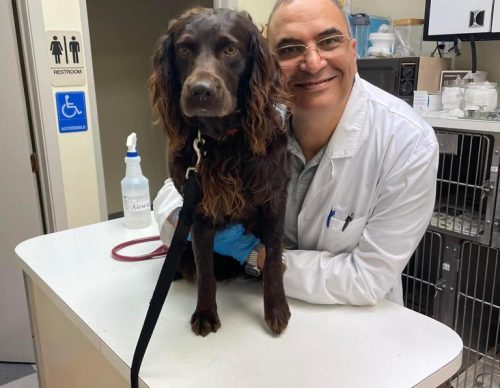

Pets Diagnostic Test
Diagnostic tests are an essential part of the veterinary medicine process. These tests help veterinarians to diagnose and treat various ailments and diseases in pets. Some of the commonly used diagnostic tests for pets include:
- Blood tests: These are one of the most common diagnostic tests used in veterinary medicine. Blood tests help to evaluate the pet’s blood count, organ function, and overall health.
- Urinalysis: This test helps to detect various urinary tract infections and diseases in pets.
- Fecal tests: Fecal tests help to identify parasites, worms, and other microorganisms in the pet’s digestive tract.
- Radiography: This is an imaging test that helps to detect fractures, tumors, and other abnormalities in pets.
- Referral: Referral to veterinary hospital specialist for advanced diagnostic tests such as ultrasound, endoscopy or echo-cardiogram.
- Biopsy: This is a procedure that involves the removal of a small tissue sample from the pet’s body for further analysis.
By conducting these diagnostic tests, veterinarians can identify the root cause of the pet’s health issues and formulate an appropriate treatment plan.

Is the diagnostic test important?
Diagnostic tests are an essential part of the veterinary medicine process. These tests help veterinarians to diagnose and treat various ailments and diseases in pets.
- Diagnostic tests can help identify health issues at an earlier stage, allowing for more effective treatment and potentially saving the animal’s life.
- Diagnostic tests provide accurate information about the animal’s health condition, allowing veterinarians to make the right diagnosis and provide the most appropriate treatment plan.
- Diagnostic tests can be used as part of preventative care, allowing veterinarians to identify potential health issues before they become more serious, reducing the likelihood of illness and improving overall health and well-being.
Make an Appointment

We’ll Take Care
of your Pets
As a veterinarian, my advice on Pet diagnostic tests would be to always ensure that your pet undergoes routine screenings and tests, even if they seem healthy. Early detection of illness or disease can prove to be life-saving for your pet, which is why it’s crucial to stay on top of their health status.
A diagnostic test for pets is used to detect or confirm a disease or condition in an animal. It can help veterinarians to identify the cause of symptoms, monitor the progress of treatment, and provide early detection of potential health problems.
Common diagnostic tests performed on pets include blood tests, urine tests, fecal analysis, radiography, ultrasound, and biopsy. These tests can help identify a wide range of conditions, from autoimmune diseases and infections to tumors and organ dysfunction.
Depending on the type of diagnostic test, preparation may vary. You may also need to collect a urine or fecal sample from your pet at home prior to the test. Your veterinarian will provide you with specific instructions on how to prepare your pet for the test.
The duration of time to receive results varies depending on the specific test being performed. Some tests may produce results immediately, while others may require more time (sometimes days or weeks) for the results to be processed. Your veterinarian will inform you of the expected timeline for receiving your pet's test results.


